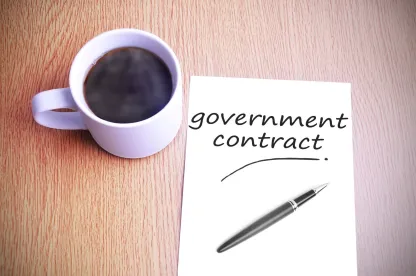|
Virtually all states and locales have policies on what are “essential” services during the pandemic. So does the federal government — basically, healthcare, grocery stores, pharmacies, transportation, etc. In the case of contracts with federal agencies, Department of Defense contracts are considered essential, but those federal contracts and others may not also meet the test of all states and locales for being essential. Federal guidance on essential services is general in nature, and Office of Management and Budget guidance to agencies on essential contract services also lacks specifics. The Department of Homeland Security’s Cybersecurity and Infrastructure Security Agency (CISA) has provided more detail on essential industries, such as the defense industrial base, but its guidance is not binding on states. CISA guidance is conceptualized in a chart as follows: |
|
|
State guidance on essential services is varied. What can federal government contractors do to keep open? Federal contractors should inquire from their contracting officer (CO) in writing whether certain of their services are federally essential or not. With a confirming letter from the CO, contractors’ offices and employees with copies of the CO’s letter on hand will be able to show local officials that they are essential and can remain open, as long as local officials are reasonable and agreeable. Of course, employers should comply with the Occupational Safety and Health Administration (OSHA) general duty clause on work exposures, such as social distancing, washing hands, etc., found within the OSHA Guidance on Preparing Workplaces for COVID-19 publication. Facility and work site closures also may result from the virus. Implied or express government “stop work” orders can have an effect on contractors. CO “directives” can lead to excusable and/or compensable delays. The contractor cannot be defaulted by government-caused delays, and may be entitled to an extended schedule adjustment and equitable adjustment if the contract costs increase. However, if an order is not directed toward a particular contract but to the public in general, that is a sovereign act not entitling a contractor to an equitable adjustment, only extra time. This ventures into new territory. Preserve your rights with a notice of change letter to the CO. Finally, beware of the “lessons learned” after other crises, such as Hurricane Katrina. At the outset, emergency government services (food service, equipment, personal protective equipment, housing, construction, etc.) were scrambled for, but down the road inspectors general noted contractor billing errors that resulted in the freezing of payments and false claims issues. Even in emergencies, do not overlook government billing details and the keeping of records and logs of performance. Keep that bad ghost of Christmas future away, while doing the real work. |




 />i
/>i


